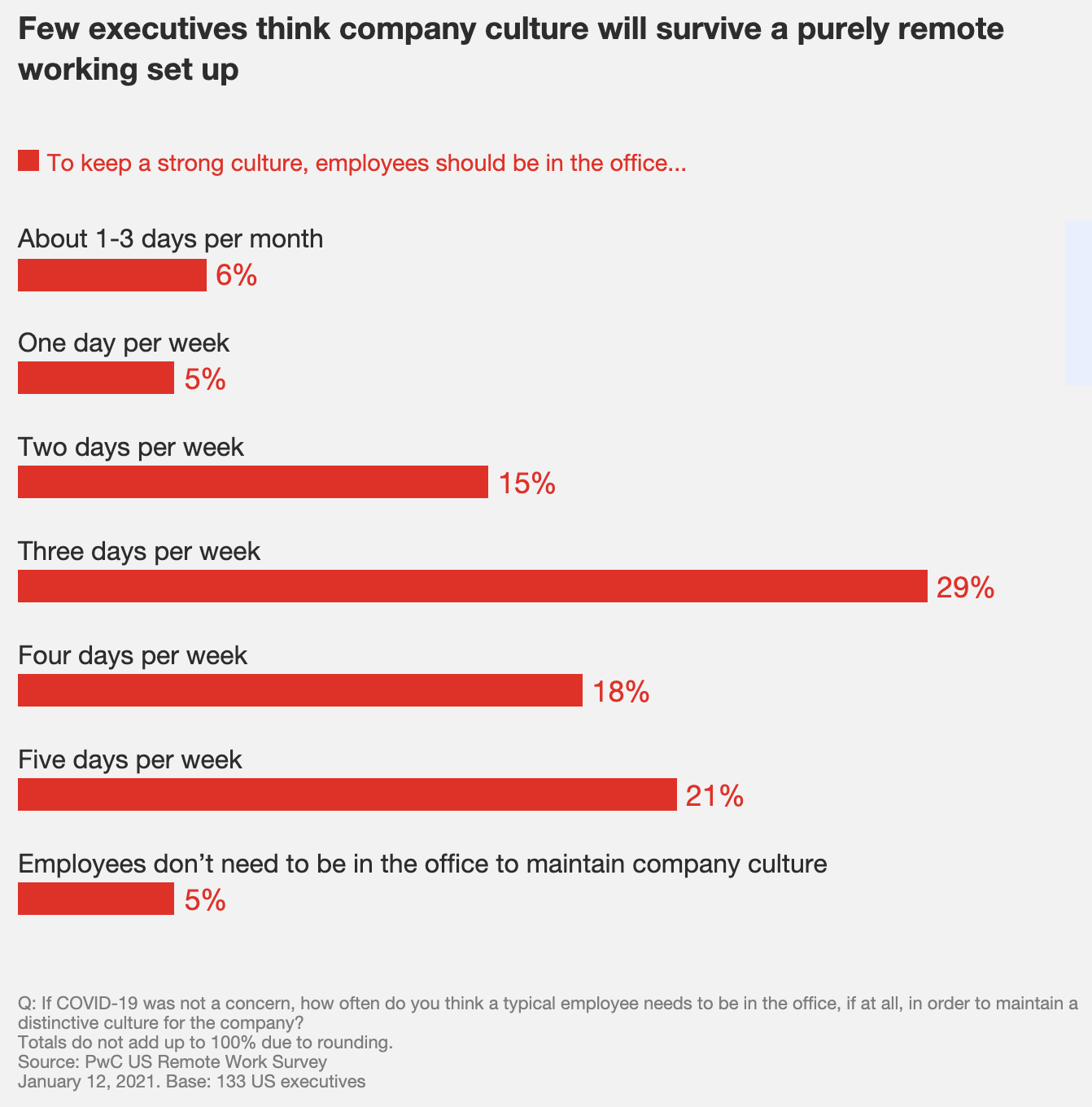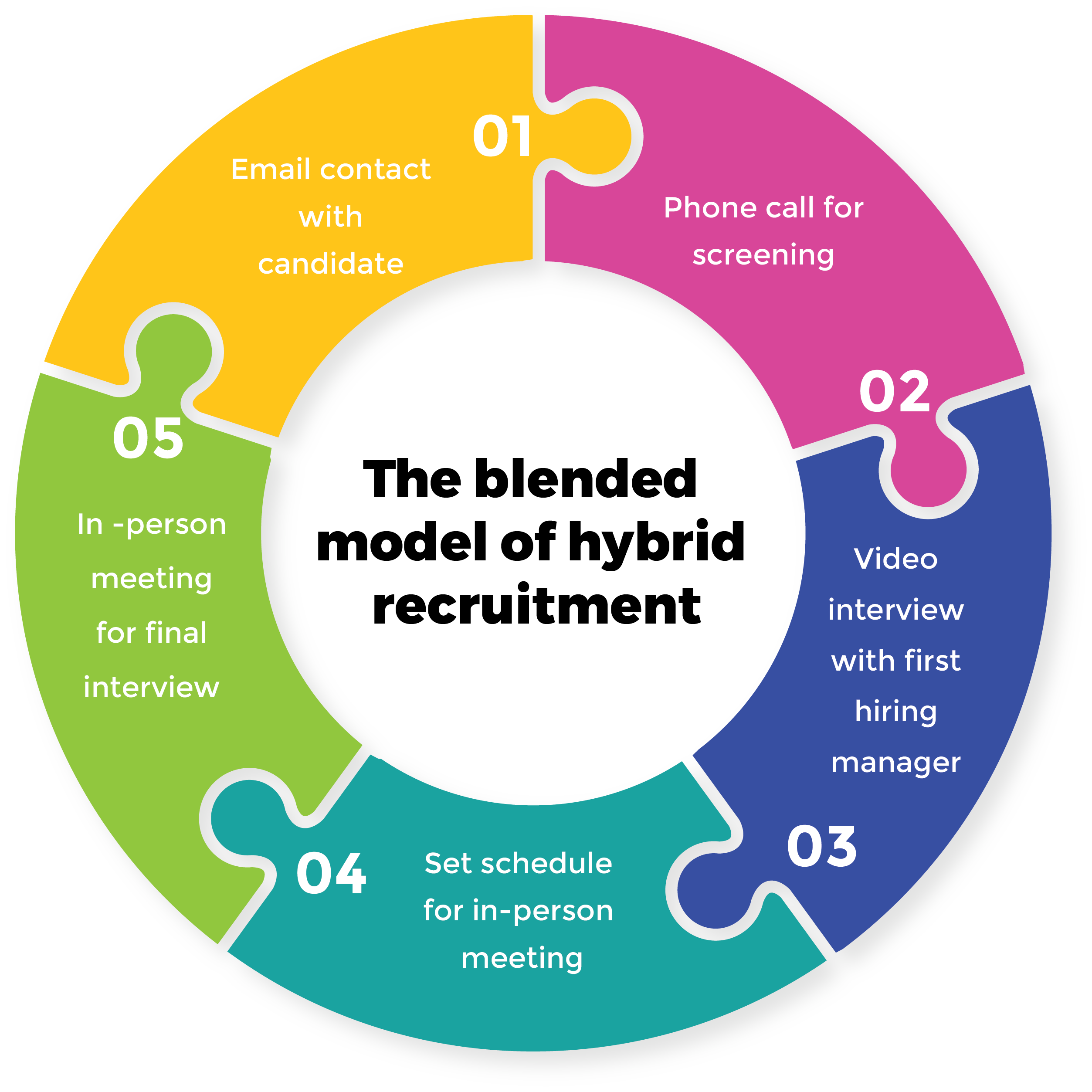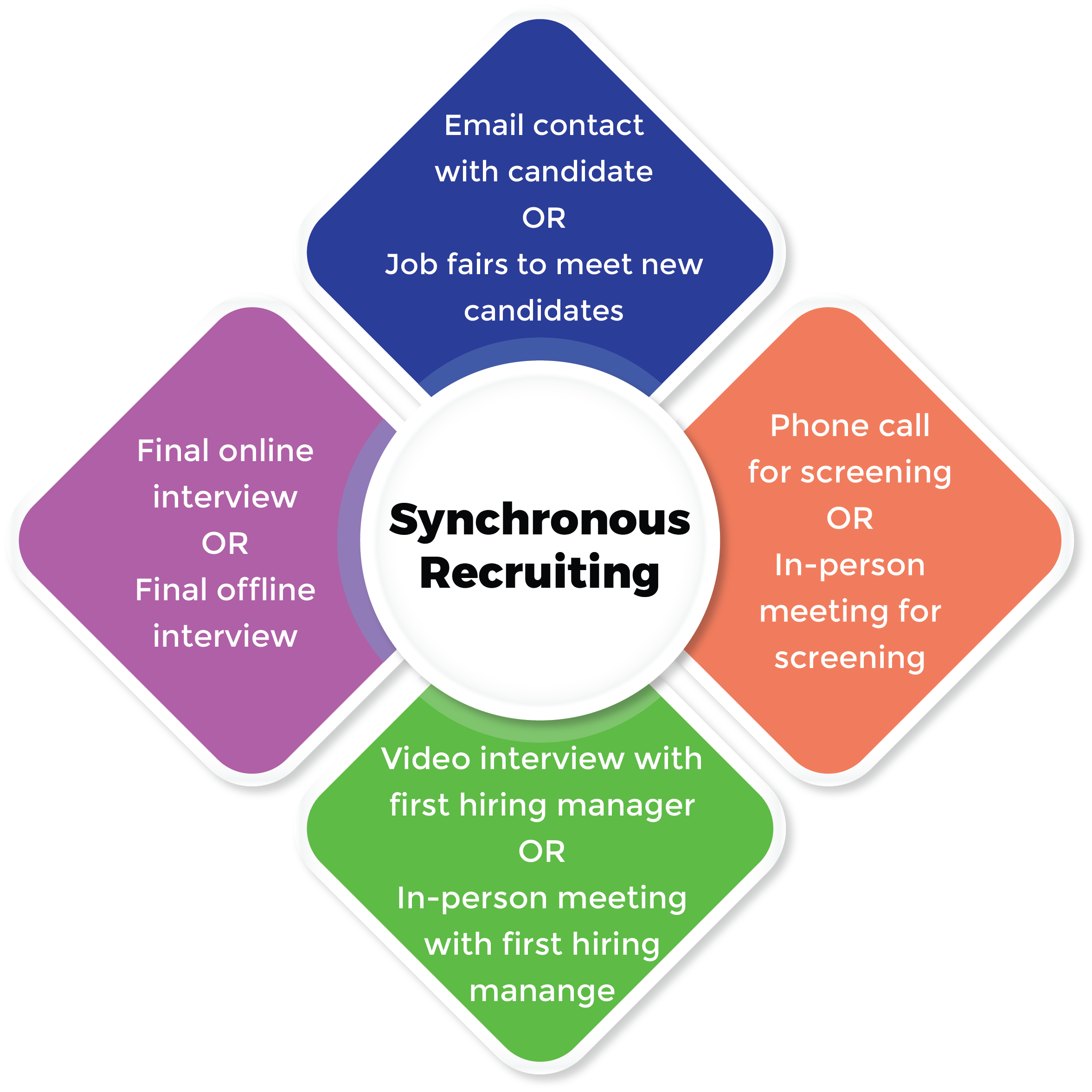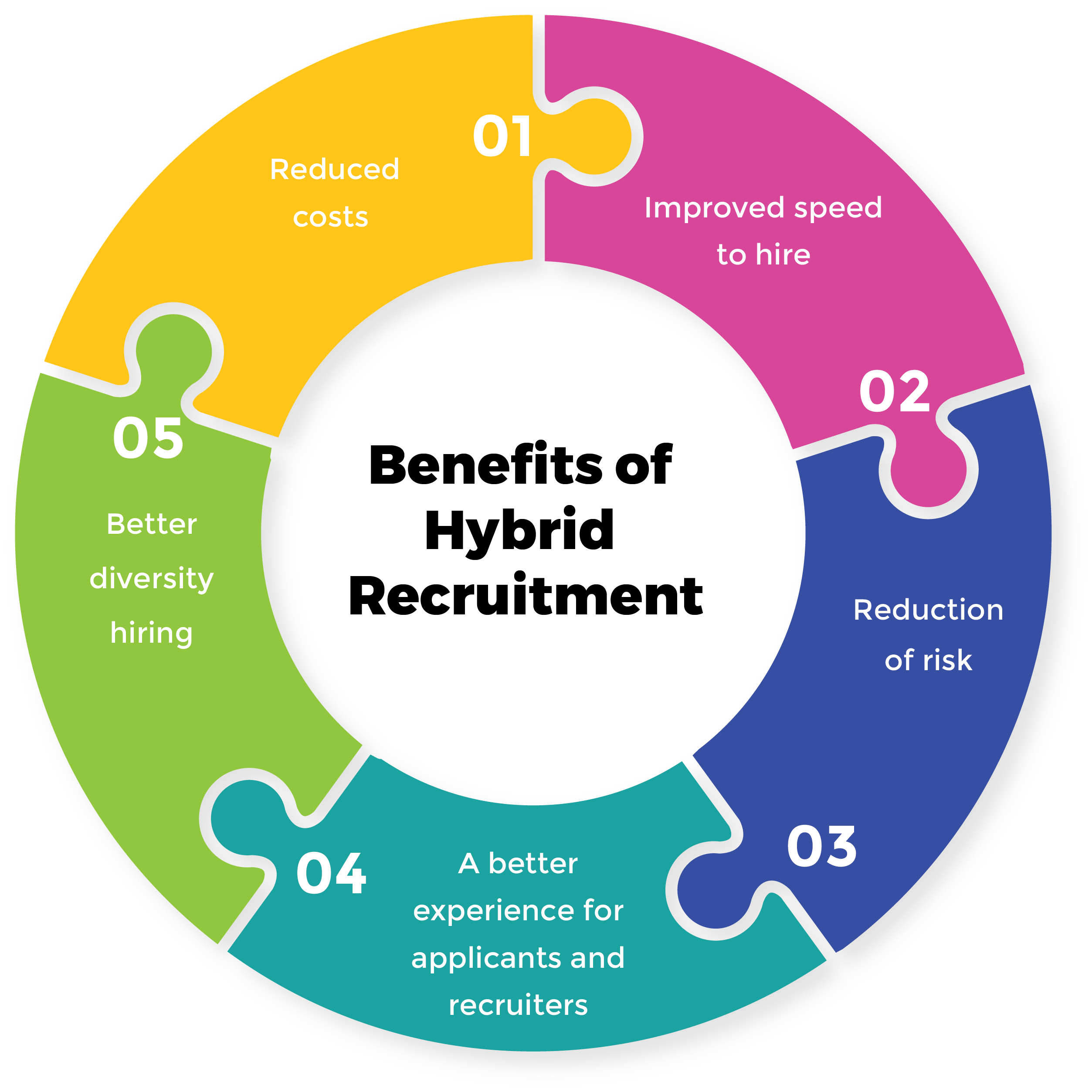The past year shook our world beyond anyone’s wildest imagination. Due to coronavirus and the lockdown, every aspect of business went for a toss. The pandemic brought with it a disruption of our supply chains, an uncomfortable and hasty shift from office to home was harsh, and businesses were trying to stay afloat.
The companies functioning well in the pandemic may seem lucky at first glance, but they also faced an additional problem: talent acquisition. We saw recruiters struggle since they couldn’t rely on their old ways to hire. Due to the restrictions, they couldn’t call the candidate and call them to the office for an interview. But that would mean hiring a person without a proper interview process. Consequently, talent acquisition saw a massive orbit shift; recruiters used hybrid recruitment for talent acquisition. However, people who aren’t familiar with it may have some natural questions about hybrid recruitment are:
What is hybrid recruitment?
How does hybrid recruitment work?
What are the benefits of hybrid recruitment?
What is hybrid recruitment sustainable post-pandemic too?
What is Hybrid Recruitment?
Hybrid recruitment combines two different talent acquisition strategies- virtual and in-person, which work quite well when used alone.
According to a study by PwC, 83% of employers say the shift to remote working has been successful for their company, while CIPD research shows that it can improve productivity. But nobody can deny that in-person recruitment works too.
So, does that mean that recruiters have to make a hard choice between the two?
Absolutely not!
For example, you as a recruiter want to interview a candidate who seems like the perfect fit for your company in terms of qualifications, and you want to see if they fit your culture. You can hop on a quick call with them, assess their personality, and move on with an in-person interview to iron out the details.

What are the three models of Hybrid Recruitment?
After understanding what hybrid recruitment is and how it can help recruiters, let us discuss the different models of hybrid recruitment. Since nothing is a one-size fit, hybrid recruitment gives you options between three modes of hybrid recruitment. You can choose the model that best fits your culture and the roles you are hiring for or plan to hire in the future.
The best part is that you can mix and match to suit you, and thus hybrid recruitment offers excellent agility. The three hybrid recruitment models are:
The blended model of hybrid recruitment
Most recruitment has various stages, and thus in the blended model, one uses the virtual mode and in-person mode at stages.

For example, one needs to see many candidates in the first round of interviews for a position. In the following rounds or so, you would have a handful of candidates.
Thus, if you were recruiting using the blended model, you would conduct virtual interviews during the first round and call the selected people to your office for the next rounds of interviews.
The composite model of hybrid recruiting.
Instead of the stage-wise approach, the composite model uses virtual and in-person recruitment in a parallel manner.
For example, a recruiter wants to conduct campus recruitment. They may decide to conduct in-person recruitment in a selected campus and conduct virtual interviews in campuses far from them to save money and time. Thus, they get to scope the talent from many campuses without wasting time and spending money.
The synchronous model of hybrid recruiting
The synchronous model follows the idea that all stages of the interview process can be either in-person or virtual. Thus, it allows flexibility to both the recruiter and the candidates and helps companies acquire talented professionals.

For example, the candidate qualifies after the first round of interviews but cannot attend an in-person interview due to a schedule mismatch. Many candidates may still be working and cannot find the time to go to an interview. Thus, the synchronous model can be applied, and he has the option to get on a virtual interview instead.
Five benefits of Hybrid Recruitment?
We saw that hybrid recruitment is flexible but does it offer more than just flexibility?
Yes, it does, for not only recruiters but for candidates too.
What are some of its other advantages?
Let us see five benefits of hybrid recruitment.
1. Reduced costs
As discussed, recruiters often have to travel to campuses to recruit new talent. But, campuses can often be far away, meaning the company needs to spend money to travel to such campuses. Plus, there is no guarantee to find the candidate you are looking for in these colleges. However, with the virtual component, you can save money significantly.
2. Improved speed to hire
Some candidates may have other interviews lined up or are currently working. Thus, it can impede the hiring process, which can cause problems for you. However, with the virtual interview process, you can get on a virtual call and hire them if they match your company culture and have the right qualifications and skills.
3. Reduction of risk
You may spend money and time with many candidates only to find that they are not the ones you are looking for in a candidate. Now, you don’t have the talent despite all the money and time you spent. With a virtual component, you can save time and money, thereby reducing your risk. When they seem like the right fit on the call, call them in to assess them further.
4. A better experience for applicants and recruiters
It’s the best of both worlds, and thus both candidates and recruiters have a better experience with hybrid recruitment.
5. Better diversity hiring
In-person recruitment has geographical restrictions since people don’t travel from one city to another to just an interview, especially if they are already working. Thus, with a hybrid recruitment system, you can hire people from different parts of a country.

Blended Hiring is the future of hiring
“The secret of my success is that we have gone to exceptional lengths to hire the best people in the world.”
– Steve Jobs
Steve Jobs built an exceptional company, and he knew that hiring the best talent out there is challenging. It may seem odd at first to consider that blended hiring is the future, but it’s a strategy that works.
To sum up, we discussed that hybrid recruitment is a mix of virtual and in-person recruitment processes and how it is the future of recruitment due to reduced costs, fast hiring, low risk, a better experience for everyone involved, and diverse hiring. We also touched upon the three different models of hybrid recruitment and elaborated on how they work using examples.
If you have been struggling with hybrid recruitment in India, reach out to us, and we can ease the weight on your shoulder.
FAQs
What is hybrid recruiting?
Hybrid recruitment combines two different talent acquisition strategies- virtual and in-person, which work quite well when used alone.
What is a hybrid interview?
A hybrid interview is when some rounds of interviews are online, and some are offline.
What are the five stages of the recruitment process?
The five stages of recruitment are planning, strategy, searching, screening, and evaluation.
Why is external recruitment better?
It helps companies get a fresh outlook and solve the problems they face while hiring.
Does Shrofile help companies with their hybrid recruitment?
Yes, Shrofile helps companies with not only hybrid recruitment but with all types of recruitments.




